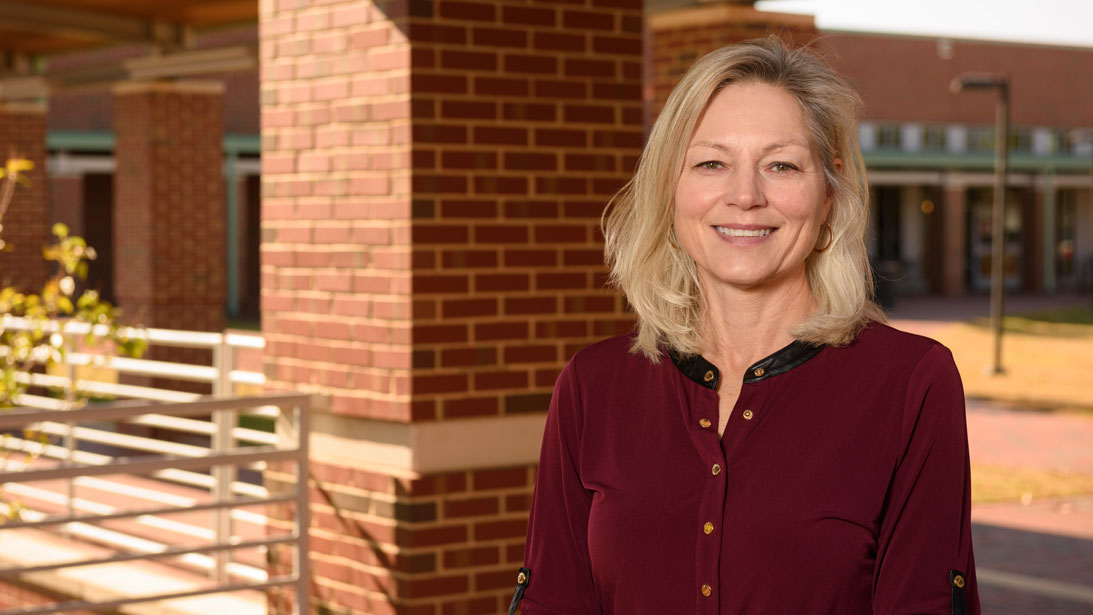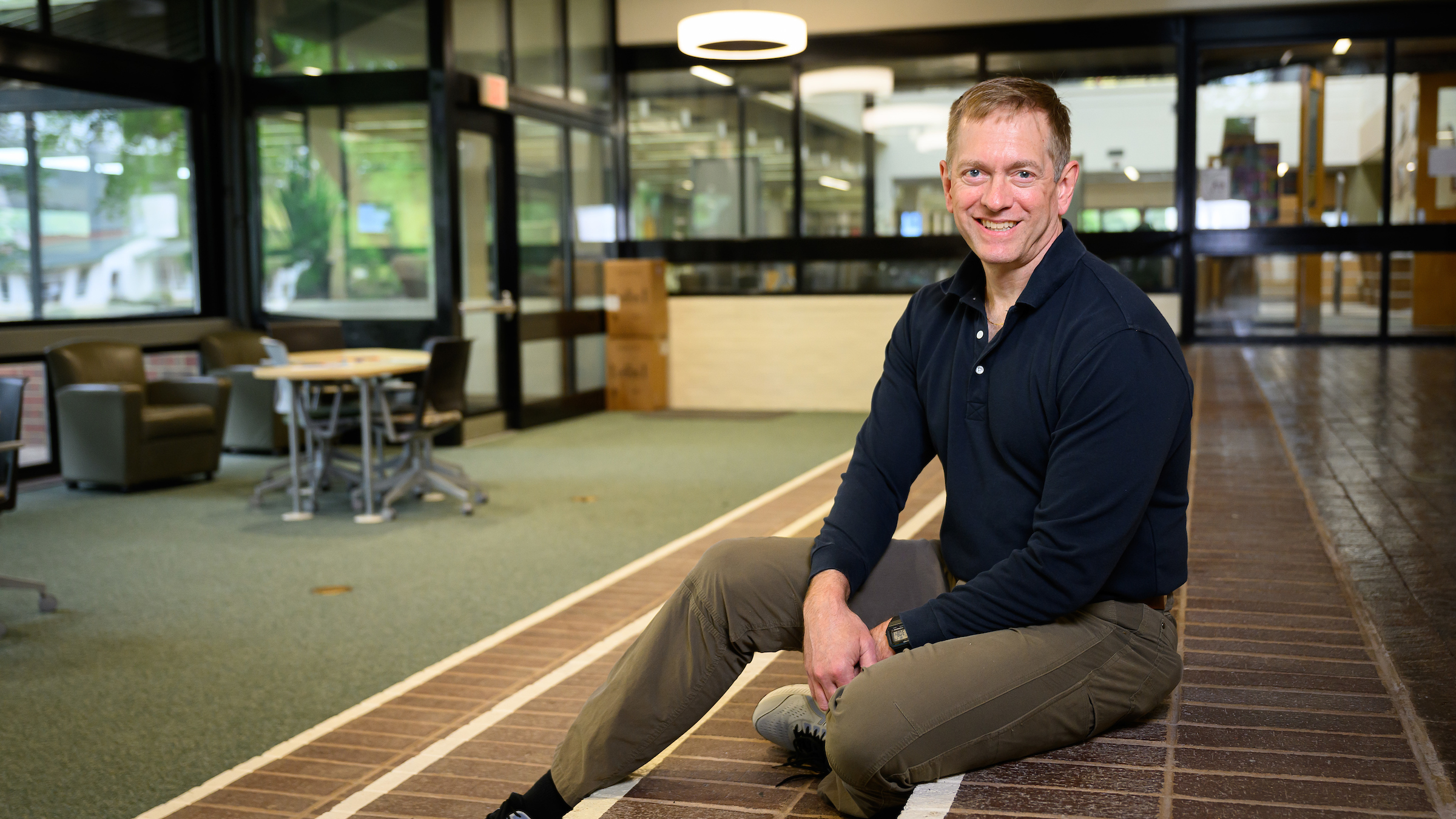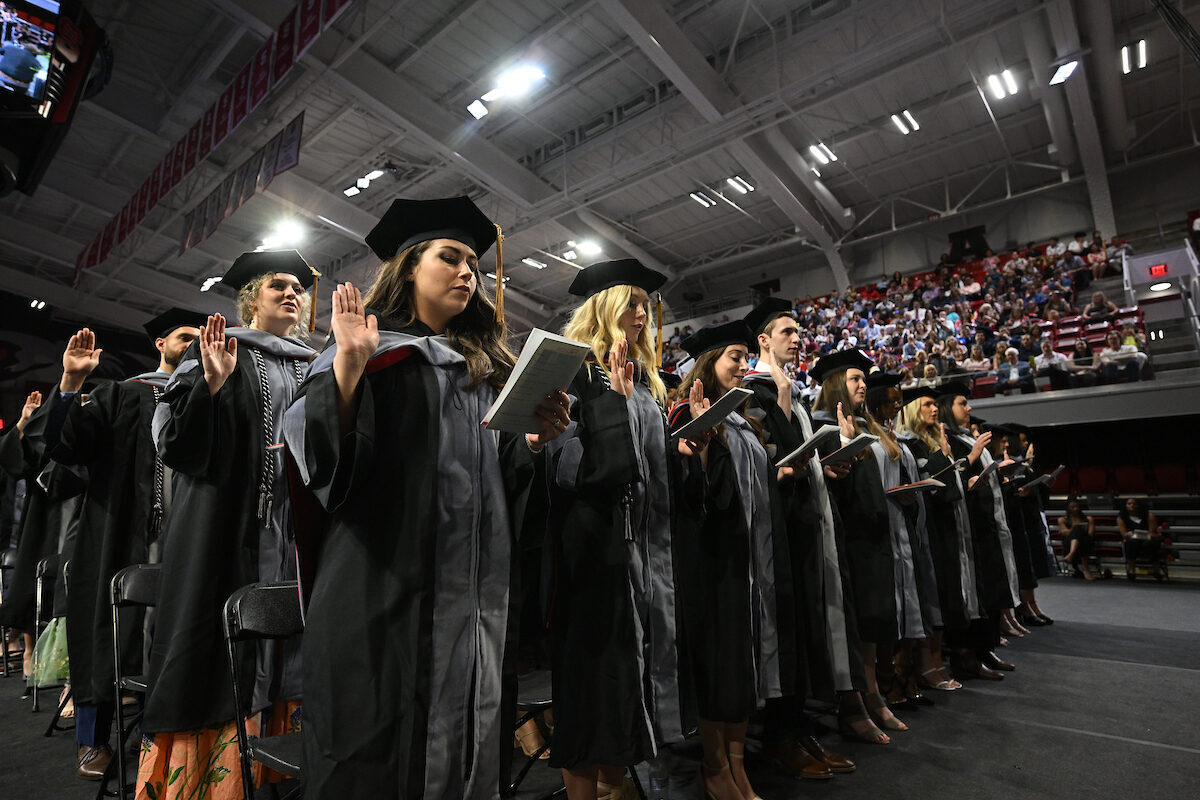Alumna Finds a Different Path Forward

Karen MacFadden Hinkley had long had a passion for both veterinary medicine or human medicine. She didn’t want to choose just one, and in the end, she found a job that didn’t make her.
A 1986 graduate of the NC State College of Veterinary Medicine, Hinkley is a medical science liaison for global pharmaceutical company Eli Lilly. She’s a critical source of high-level communication between the company and the country’s vast medical community, working to improve the performance of medicine and ensure its proper usage.
It’s the perfect position for Hinkley, whose passion for science is enhanced by her intellectual rigor and informed by her clinical training and experience as a DVM.
“It’s scientifically challenging,” says Hinkley. “I’m reading continuously. You must stay current.”
A critical source of high-level communication between the company and the medical community, medical science liaisons work to improve the performance of pharmaceuticals and ensure their proper usage. Hinkley became a medical science liaison for Eli Lilly in 2005 after serving as a sales representative for the company for 12 years. She is now one of 80 medical science liaisons for Eli Lilly, which has 41,000 employees worldwide.
Currently assigned to field of human dermatology, Hinkley has worked in a number of other specialty areas during her time as a liaison. There’s another plus to the job. In 2011, she was able to move back to the Raleigh area, where she grew up. She lives in Wake Forest, and her liaison territory covers both Carolinas, Virginia and Washington, D.C.
“Even though I’m not a practicing veterinarian,” she says,” I use my background every single day.”
Now when she visits campus, it’s because she’s intimately involved in the health of the animals being treated there.
“Even though I’m not a practicing veterinarian,” she says,” I use my background every single day.”
Hinkley remembers wanting to be a veterinarian from the time she was 5. After moving from Washington to Minnesota and then back to Washington, she settled with her family in Raleigh when she was in sixth grade.
Hinkley also always had a passion for math and science. While in high school, she started to consider a future in the burgeoning field of biomedical engineering. At that time, the only universities offering degrees in the field were out of state, and that option wasn’t available to her.
So she went to Wake Forest University, majored in biology and toyed with entering either medical school or veterinary school. In the end, she was admitted to both: medical school at East Carolina University and the NC State’s CVM. After contemplation, she returned to her childhood dream and enrolled the CVM.
The CVM was in its early days; incoming classes were limited to just 40 students. Hinkley’s would be the second graduating class in the school’s history. She credits Ben Harrington, (who was a major force in the development of the college), with being particularly influential in her academic career, especially with respect to his equine and large animal teaching.
After graduation, she joined the equine residency program at the University of Missouri, where she also served as an instructor, for five years.
Hinkley discovered that she loved teaching and considered becoming a professor. Instead, she was offered a job working at a private practice in Yakima, Wash., where she had completed an externship during college. She worked there for two years, mostly with equine patients.
She enjoyed the work but it was physically demanding. Much of the work was outdoors, often in very cold conditions. Hinkley’s developed cryoglobulinemia in her feet, a condition where the blood contains large amounts of cryoglobulins – proteins that become insoluble at reduced temperatures. Those can cause vasculitis, or inflammation of blood vessels.
“I had to either move to a warmer climate or find another career,” she says, “or I could have started losing fingers and toes.”
At the time a friend who worked in pharmaceutical sales told Hinkley about the sales rep opening at Eli Lilly. It was a major change and one that was more about making money than strengthening science. When she heard about Eli Lilly’s medical liaison position, she immediately knew it was for her. She relishes the independence and self-motivation that the job requires — and that is all about exchange of scientific and medical information.
The move back to North Carolina also helped her reconnect with some CVM classmates, a group of seven or eight women who regularly go to dinner and socialize together.
And she also believes being here was good for her son, Ian, now a freshman at the Massachusetts Institute of Technology, whose own passion for math and science have him considering a future in mechanical engineering.
For Karen Hinkley, taking the road less traveled has taken her to places she couldn’t have foreseen as a student at NC State, but that suit her perfectly. Her example can inspire today’s students stay open to all the possibilities that lie ahead — including ones that a rapidly changing world may still be creating.
~Steve Volstad/NC State Veterinary Medicine


